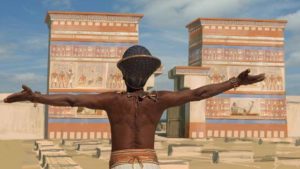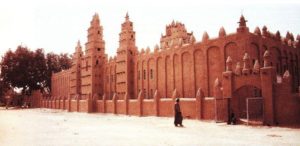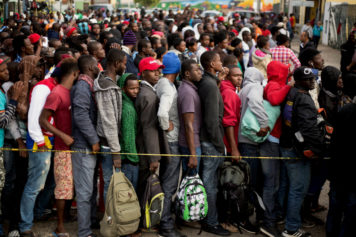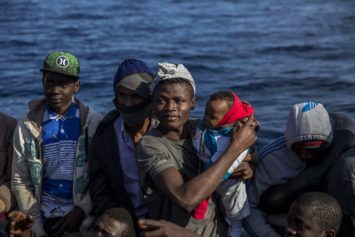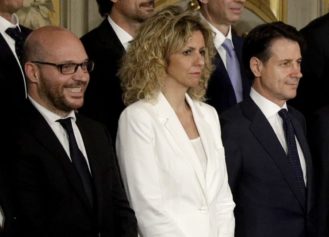By Imhotep Lesage
There’s not one week that goes by without a serious reminder of the immense challenges confronting Africa and all Afro-descendents around the world.
From African migrants drowning at sea by the thousands in the Mediterranean, to the powerlessness of African armies to effectively thwart the onslaught coming from various savage Islamic militants, to the pillage of our economic resources, to pivotal questions of corruption and economic exclusion, this litany of challenges confronting Africa mostly originates from one deficiency— the incompetence and weakness of the African ship of state, and a total absence of genuine (collective) African political consciousness.
Afro-descendants, whether they find themselves in Europe, Asia or the Americas, do not fare much better than they do in Africa. Their lot may sometimes vary, but the weight of history often has them battling against the same impediments of economic exclusion, racism, discrimination and police brutality. Above and beyond the common historical issues that unite African people, we share the same cultural heritage and secular political interests which we ought to defend tooth and nail, using all possible means. Ironically, this young century evolved in such a way that everyday countless events and policies confirm the accurate diagnosis and conclusions of Pan-African theory. Now, more than ever, the only forward looking solution to our problems, the master key that will allow us to transcend our impediments, is the renewed construction of a powerful Pan-African core state and African renaissance.
Oblivious to the urgency of our situation, many Pan-African organizations indulge in sterile debates about the 22nd chakra and the sex of the angels. Have they forgotten that since the inception of Pan-Africanism the main thrust of our founding father’s actions, such as Edward Blyden, Dessalines, Antenor Firmin, CLR James, Garvey, Kwame Nkrumah, Cheikh Anta Diop, Amilcar Cabral and Julius Nyerere, centered on the necessity to reclaim control of the transforming commanding heights of power to build a superpower Pan-African core state?
Those who wish to see an African totally liberated from oppression number in the millions. We are millions wanting to see a unified African continent where dignity, harmony between African people, peace and rules of efficiency reign. That being said, the dreamers in our midst must come to terms with reality and understand that only rough and tough conquest of political power levers will permit us to positively transform African society and attain our objectives.
A band of young comrades sharing the same common beliefs in the ideal of Pan-Africanism understood that reality early on. Mindful of the teachings of their ancestors, they created The Umoja Panafrican League (LP-U ligue panafricaine Umoja) to carry out the task of building the United States of Africa. They summarize the mission of their organization in three words—build, unify, liberate.
To realize the superpower Pan-African core state they advocate a different path from the one followed without success these last 50 years. The Umoja Panafrican league (LP-U) wisely decided to embrace the long hard slog and invert the strategy by building the Pan-frican core state from the bottom up. Ideally, militants of the LP-U meet populations wherever they are, tries solving their local problems, while actively participating in the popular education of African masses. This is how the Umoja Panafrican League (LP-U) intends to erect the federal Pan-African state, city by city.
Gradually pursuing the path to power, the league is running a 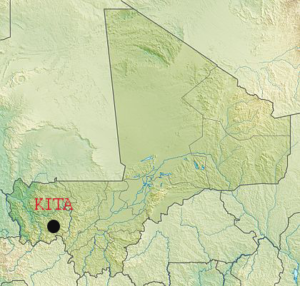
In an ideal world, such a reputable candidate, with solid credentials would automatically win the mayoral race. Alas we live in the real world, where if one wants to accede to high political office he must have resources at his disposal to communicate his message of hope during the electoral campaign.
This historical campaign presents a golden opportunity for all Pan-Africans, young and old, to financially undergird concrete actions geared toward rooting a new political Pan-Africanism agenda on the African continent. The Kita mayoral election provides an extraordinary opportunity to access levers of powers and plant the flag of Pan-Africanism on the African continent itself.
All serious Pan-Africans must contribute economically (whatever the sum) to help propel our cause at the commanding heights of an African city. Is it not worth it to contribute financially, in the hope of giving the residents of Kita a responsive government preoccupied first and foremost by the well being of its citizens? The potential election of a LP-U mayor at the head of an African city is not a small feat. A victory for 21st century Pan-Africanism in Mali would demonstrate to the global African family and our secular enemies alike that the project of African power can reincarnate itself, and take root anew on the African soil in osmosis with local African populations.
The forces of chaos lurking over Kama never sleep. They’ve been maneuvering and strategizing every day for more than 2,000 years to destroy political Africa. Our forces, whatever their obedience, must realize that construction of a superpower Pan-African core state in the 21st century now goes through the mayoral race of Kita. For all the chatter about fulfilling African aspirations and the talk surrounding the defense of our populations core interests, we might as well go out of business to definitively make way for the exploiting forces and comprador elites who loot Africa, if we collectively show ourselves unwilling to activate and mobilize for actual power.
Those of us living in Diaspora have to ponder our future predicament without a powerful African continental bloc. In a context of heightened world competition, will it be possible to deepen our cultural, economic and political ties with an Africa devoid of politically conscious governments who are sensible to the destinies of the global African family? Will it be possible to make our voices heard in the concert of civilizations without the rampart of a powerful continental African voice?
If you’ve answered negatively to one of those questions, the ball is in your court. You can play an integral part helping build the Pan-African pyramid by lending a hand where it’s desperately needed. This momentous occasion calls for the mobilization of our forces to accomplish a common Pan-African objective.
When pondering the significance of this election, one must remember it takes place in Mali, the modern heir to the empire that saw the birth of Soumanguru Kante. This political ensemble under the hospices of the “chasseurs brotherhood” gave the world its first real charter of human rights (Kurukan Fuga charter) in 1222. The Kita election will be held in the country of Timbuktu’s ancient seat of higher learning and knowledge. What would Marcus Garvey the great do if he had the possibility to positively influence the results of such an election? Would he not move heaven and earth to see through the victory of Pan-African forces? There is little doubt that other great African renaissance historical figures such as Cheikh Anta Diop, Kwame Nkrumah, and Franz Fanon would not spare any effort supporting such an historical campaign.
This election is the perfect occasion to send a clear message to the forces of chaos arrayed against Africa. Today, we have to mobilize and raise our voice against their nefarious aims for our mother continent. I have the utmost confidence in world Pan-African forces. I know what they are capable of when operating in accord with the revolutionary slogan of victorious Africans from Haiti who long ago proclaimed: Unity is strength.
The Umoja panafrican league (LP-U) shares this slogan with the Africans of the new world. We can anticipate that it will also bring them victory. UMOJA NI N’GUVU!
